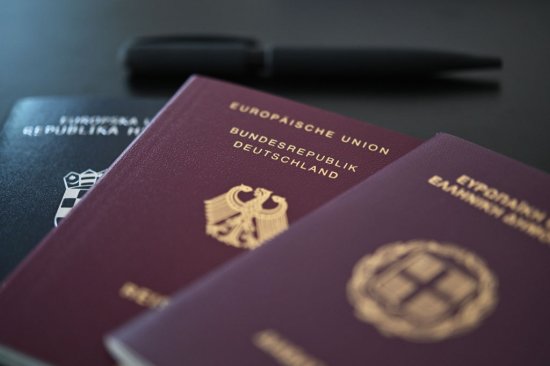
There are complex social and historical dynamics that determine which countries are more likely to have higher scores.
The Henley Passport Index released its ranking of the world’s passports for 2024 on Tuesday. Once again, Singapore was crowned the world’s most powerful passport, scoring highly on metrics like visa-free access and visa reciprocity.
But what exactly makes some passports more powerful than others? According to Sarah Nicklin, the group head of Public Relations at Henley Global, the answer is actually very simple. “The index really just ranks passports according to the number of destinations that they can access, visa free,” says Nicklin.
[time-brightcove not-tgx=”true”]Henley Global, the company that creates these rankings, uses exclusive data from the International Air Transport Association, which allows it to create detailed visa lists of all 199 countries in the Henley Global passport database.
This means that for every destination a passport holder can enter visa free, that passport gets one point. A destination is considered visa free if the passport holder can enter the country without prior approval from the governing authorities of the destination. Under this classification, e-visas on arrival would still be considered visa free, according to Nicklin.
However, while this methodology is very simple on the surface, there are complex social and historical dynamics that determine which countries are more likely to have higher scores.
“A lot of this has to do with history, culture, and language,” says Nicklin.
In particular, Nicklin notes that African countries have particularly low rates of visa-free access. While it’s true that many African countries have relatively high rates of visa overstays and asylum seeking, even once these factors are taken into account, the discrepancy in the rates of visa-fee access still points to predetermined cultural and racial biases, according to a study published by Professor Mehari Taddele Maru in the Henley Global 2024 mobility report.
“It is highly likely that European migration policies, shaped by national identity politics, play a more significant role in these discriminatory restrictions than is officially acknowledged,” Maru said in the passport rankings press release.
Despite the geopolitical factors at play, many countries that have deliberately prioritized improving their passport ranking were able to move up the list over the process of a few years using diplomatic strategies such as visa waiver agreements. In particular, Nicklin points to the example of the United Arab Emirates, which was able to improve its passport ranking from 62nd to 9th over the past 18 years. “Countries can very strategically and deliberately work on improving their passport power,” says Nicklin.